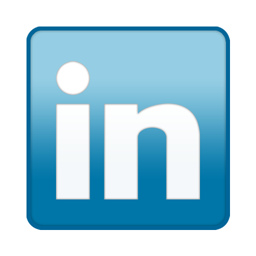Filed under: Career Resources, Events | Tags: article, Athens Ohio, Bobcat, brand, career advice, career prep, Career Resources, Career Services, careers, dos and don'ts, information session, job skills, live chat, Ohio University, online image, personal brand, Personal Brand Week, professional, professional image, PwC, students, workplace, worksheet
 PwC’s Personal Brand Week
PwC’s Personal Brand Week
Last year PwC hosted its first Personal Brand Week. This program provided students and recent grads with an overview of the importance of personal brand and steps you can take to develop your own personal brand. During the week of February 7-11, PwC is holding Personal Brand Week 2.0, an opportunity to take an even deeper dive into personal brand. As you know, landing a job today requires more than just good grades. You need to focus on and promote your individual strengths, stand out from your peers and tell a unique story. In short, you need a personal brand.
Each day during Personal Brand Week, PwC will focus on one of five elements they recommend you master in order to develop and refine your unique personal brand:
Day 1, Monday—Building Your Network
Day 2, Tuesday— You Are What You Write
Day 3, Wednesday— Your Online Image Makeover
Day 4, Thursday— Prepare for Career Fairs and Interviews
Day 5, Friday— Your Elevator Pitch – with the announcement of a special contest with a $5,000 prize!
You can access Personal Brand Week 2.0 starting on February 7 on PwC’s Facebook page www.facebook.com/PwCUSCareers or at pwc.com/us/personalbrandweek
PwC also invites you to participate in a Live Chat on Personal Branding at www.pwc.com/us/careercorner on Wednesday, February 9, from 12:00-1:00pm PT/3:00 – 4:00pm ET. This is your opportunity to ask your personal brand questions to PwC’s US Recruiting leader, Holly Paul! We hope you take advantage of Personal Brand Week 2.0 and please be sure to share this with your friends of all majors!
Filed under: Career Resources | Tags: career prep, Career Resources, Career Services, careers, email, email etiquette, employer, job skills, Ohio University, online etiquette, online image, online presence, professional, professional email, professional image, unprofessional
Email Etiquette:
Being Professional in the Digital World
We’ve all become accustomed to using email for business purposes. While this is extremely convenient, it includes some downfalls for those who aren’t careful to watch their email etiquette. Many people know how to write a professional business letter, but let the rules fly out the window when they sit down to write an email. In many cases, an email is your first contact with an employer, so take the time to make a good impression:
1. Have a professional email address.
Cute and creative email addresses are simply not appropriate for the work environment. While ilovedisney@gmail.com works fine for all your friends, don’t use it to send emails to companies with whom you’re interviewing, and definitely don’t list it on your résumé! Instead, opt for a more straightforward, professional address like matt.johnson@gmail.com or b.taylor@gmail.com. If you need to, create a new free account for business use only.
2. Be concise.
Don’t overwhelm the reader with a flood of unnecessary wordiness. They will be much more likely to read your email if you get to the point as quickly as possible. Aim for two or three short paragraphs at most.
3. Use a polite tone.
While it’s important to be concise, you don’t want to come across as rude or demanding. Be pleasant, respectful, and friendly in your message. Use words and phrases like “please,” “thank you,” and “I would appreciate it.” Address the person you’re emailing by their appropriate title (Mr., Ms., Dr., etc.) unless you know them well or they have indicated that it’s OK to use their first name.
4. Avoid abbreviations & emoticons.
PLZ, LOL, U2, and all those little smiley faces we like to put in our messages…these are all great, but they’re simply not professional. Also, please don’t shout with ALL CAPITALS, but don’t use all lowercase either.
5. Proofread your message.
We’re so used to sitting down and whipping off 60-second emails that it’s extremely easy to skip this step…but this could be a disaster! After you’ve written your message, go through it with a fine-tooth comb to check for grammatical or spelling mistakes. It’s not a bad idea to have a friend give it a glance-over as well—it’s amazing what that fresh pair of eyes can catch for you. Extra tip: Wait to fill in the “TO” email address until you are completely finished writing and proofreading your message. This way, you will avoid accidentally hitting “send” before you’re absolutely sure that the message is perfect.
6. Add a signature block with contact information.
This means your name, address, and phone number. Keep it professional and consider deleting any clever quotes or artwork.
7. Ask before you send an attachment.
Computer viruses are so common that many people won’t open an attachment unless they know the sender. Since this is the case, it would be better to send an initial email message asking if you can attach a copy of your résumé or other files for them to review, unless the application specifically asks you to email it as an attachment.
Filed under: Career Resources, From the Staff, Job Search | Tags: business, career advice, career fair, career prep, Career Resources, Career Services, careers, From the Staff, job hunting, Job Search, jobs, LinkedIn, network, networking, Ohio University, online image, online presence, professional, professional image, professional network, professional profile, recommendations, students, workshops

LinkedIn: Make the Most of Your Connections
If you are looking to connect with other professionals, job search, or learn more about companies you are interested in, LinkedIn is a great place for you to achieve all of these tasks, all while creating a professional presence for yourself in the social media world. LinkedIn is an online networking site that is a growing trend in the professional world.
LinkedIn serves as a means to connect professionals by focusing on your career and experiences. Given the fact that the majority of jobs available are made known to individuals through networking, LinkedIn can be a very strong tool for you to take advantage of. With LinkedIn you are able to make connections with others you have worked with in the past. You never know how you may be connected to someone who has the right job opportunity for you. This professional social networking site provides you with an opportunity to highlight your experiences, receive recommendations from past employers, and connect you to professionals in your field.
In order to begin building your professional LinkedIn profile, here are some quick and simple ways to get started and help your profile stand out.
- Craft an informative profile headline
- Display an appropriate photo
- Show off your education
- Develop a professional summary statement
- Fill your “specialties” section with keywords
- Update your status weekly
- Show your connectedness with LinkedIn group badges
- Collect diverse recommendations
- Claim your unique LinkedIn URL
- Share your work
For more information on all the features of LinkedIn and tips for creating your profile visit the Career Services Handout Library. Here you will find resources on how to build your professional profile, tips for networking, as well as videos to help you get started. Career Services is also hosting a Get Connected with LinkedIn Workshop on November 8th in Baker 503 at 5:00 PM that will share all this information as well.
—Bethany Powell, Career Services Practicum Student
Filed under: From the Staff, Job Search | Tags: Job Search, online image, resume
It seems that just about everyone these days have multiple social media accounts that are used in various ways from blogging about professional and educational endeavors to sharing photos with friends and relatives. So where does social media come into the job search? Should you include social media networking information on your résumé? Consider the following:
LinkedIn: It may be a good idea to reference your LinkedIn address at the top of your résumé so that employers may connect with you, gain further information and learn about your extended connections. This is a professional site and can prove your skills networking with others in a business perspective, if you participate in discussions and post information.
Twitter: You may reference Twitter but be wary about simply listing your Twitter address. Rather, reference the type of information that you post about. The same holds true for blogs. Providing a link so that employers can read your blog may be helpful.
Facebook: If you use Facebook to stay connected to friends and relatives, do not include this on your résumé. A résumé is not the place for friendly interactions.
Stick to including only professional social media on your résumé. This can show employers how you tie social media into your professional life. Choose to include only the media where you are most active and provide information on your résumé that lets employers know you understand them and how to utilize them to disseminate information.
— Heather Pittman, Assistant Director
Filed under: Career Resources, Job Search | Tags: careers, dos and don'ts, employer, Facebook, interviews, job hunting, jobs, online image, online presence, professional
As you read in our recent post, What does your Facebook say about you?, employers are looking at more than just your résumé. They are also looking at your web presence to determine whether or not they hire you. It’s important as you job hunt, to make sure you have a positive online presence that won’t keep you from being hired. Here are some DOs and DON’Ts for a positive image online:
- DO clean up digital dirt before you begin your job search. This includes removing any photos, content and links that can work against you.
- DO consider making your own professional group on Facebook, LinkedIn or BrightFuse.com to create relationships with recruiters and potential referrals.
- DON’T whine online. Keep your online content positive, professionally and personally.
- DO highlight accomplishments inside and outside of work. Be proud of what you’ve accomplished and show it online.
- DO be selective about who you accept as friends. Others can see your friends, so remember to monitor comments made by others.
- DON’T mention your job search if you’re still employed.
Even if you’re not searching for a job right now, it may be a good idea to search keeping your online profiles clean now. Take a look at your profiles. What information may keep you from getting that dream job?
Check back later for information about setting up your own professional profile
Filed under: In the News, Job Search | Tags: careers, Facebook, interviews, job hunting, jobs, online image, resume



